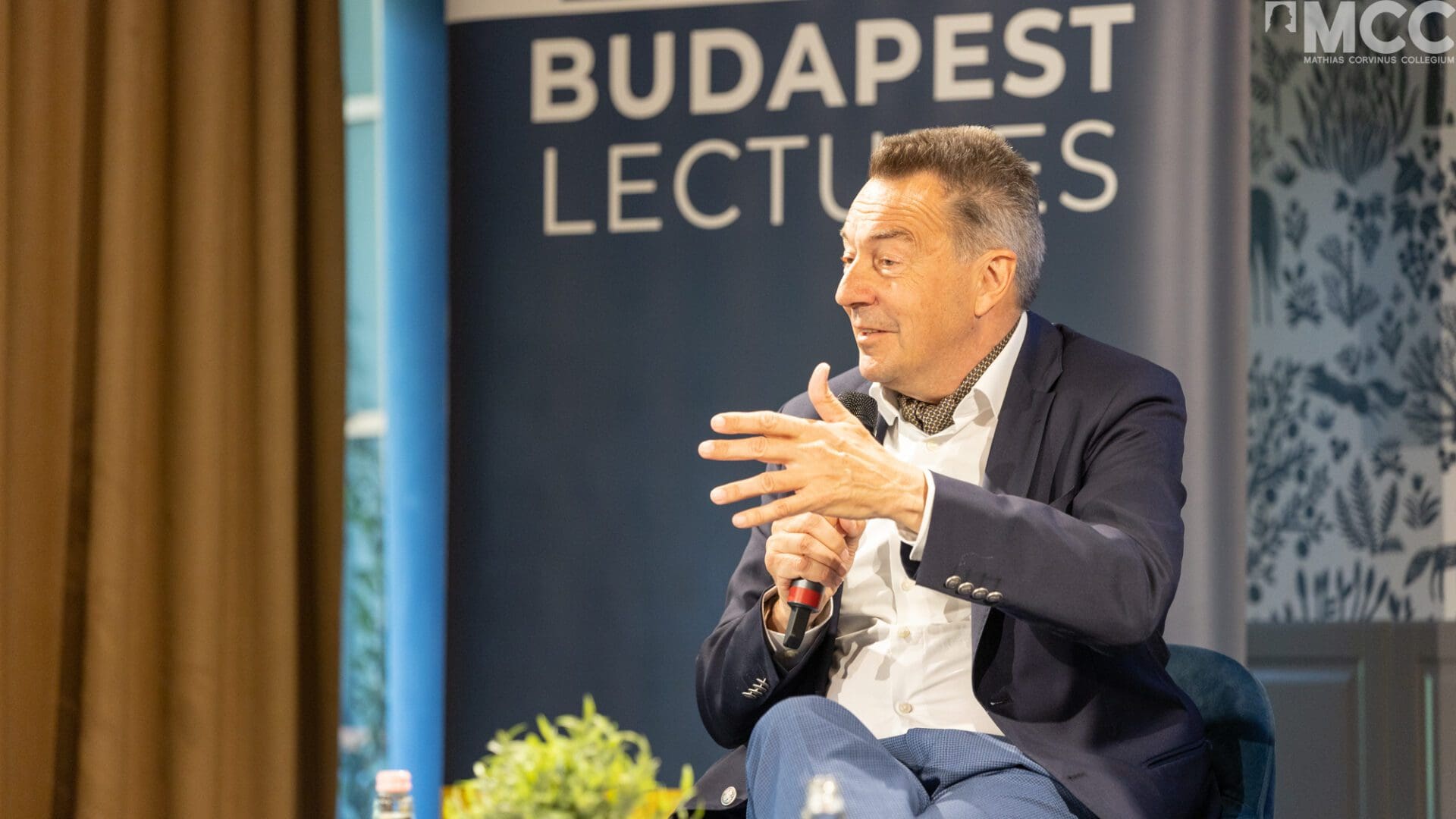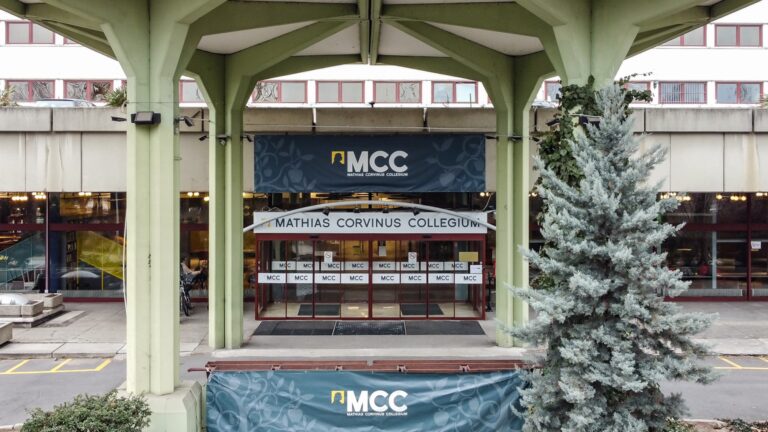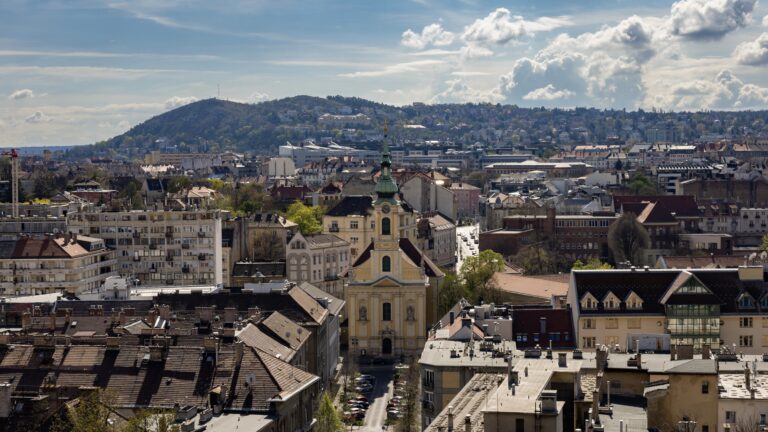Peter Maurer is a Swiss diplomat who served as President of the International Committee of the Red Cross (ICRC) between 2012 and 2022. During his tenure, he prioritised strengthening humanitarian diplomacy, involving states and other actors with respect to international humanitarian law, and improving humanitarian assistance through innovation and new approaches. He currently serves as President of the Basel Institute on Governance and is also a member of the World Economic Forum’s Executive Board. On 26 April, he was in Hungary as the invited speaker at the Budapest Lectures series organised by the Mathias Corvinus Collegium (MCC).
To begin, Maurer was asked about the most challenging moments of his ten-year presidency. He said that he could not recall one specific moment, rather trends. He explained that there were issues that had been there for hundreds of years, such as gaining access to battlefields or having prisoners returned. However, he said that new issues arose during new conflicts. The fragmentation of the conflict environment was one. Maurer noted that there were no longer two sides to a conflict anymore, rather seven to ten parties at the same time between whom mediation was needed. The second factor was the impact of the urbanisation of the world on conflicts. Many conflicts were fought in cities instead of battlefields, causing more and more devastation. The third factor, he said, is that the battlefields extended into the cyberspace, where misinformation became part of the warfare. These challenges were brand new, and the ICRC was not prepared to deal with them so they had to adapt.
When asked about the lack of willingness to reach a consensus that can be often observed between warring parties, Maurer said that
almost every conflict is currently inflicted by big power competition,
making it harder to reach a consensus. ‘Nobody fights wars alone, everybody’s a client of somebody’, he remarked. He continued by saying that the humanitarian space has been almost hijacked by big powers, resulting in more complex problems from a humanitarian standpoint.
According to Maurer, most wars are a result of bad governance, political actions, social tensions, and climate issues. But behind all of these factors power politics can be found: big powers normally attempt to instrumentalise the fragility of a region for political gain. He concluded that it is a ‘no way out situation’, and recalled that he has always tried to warn politicians that if they hijack the humanitarian space, issues will escalate.
Talking about convincing leaders to pay more attention to the humanitarian aspects of conflicts he said that ‘For me, there’s still a cliff-hanger of hope’. Citing such cases as accessing prisoners and returning dead family members to their home, he underscored that humanitarian organisations need access to war, and the sooner leaders realise that the sooner they can solve their problems. But he also underscored that society and communities also have a responsibility, and active community leaders must make their voices heard to resolve conflicts.
He was then asked about the ICRC budget during his presidency. The host of the event pointed out that in the first four years of Maurer’s tenure, the budget of the organisation increased by 50 per cent, asking the former president how he had achieved that. Peter Maurer replies that it was a result of exponential needs. He reminded that when he became president, Syria and Libya were fighting civil wars and the Afghanistan conflict was still active. At the time, he aimed to convince traditional donors that the mitigating force of humanitarian work needs to be scaled up—this was an entry point. The budget increase from his point of view is not a success story, rather a story of failure, because when humanitarian organisations can increase their budget it means that diplomacy has failed somewhere. He explained that when he started, he wanted to move their funds out of the European continent, because it was the ‘continent of peace’, however, in 2014 he was contradicted by reality with the Ukrainian conflict scaling up. He said that he realised the organisations needs to focus on two factors better: it needs to shrink the need and change the behaviour of belligerents. He said visiting many of the conflicts has shown him that purely humanitarian aid is not the best recipe; instead, small local entrepreneurship should be encouraged, and help should be provided to secure sustainable income for those affected.
Giving aid is a short-term solution, a vicious cycle, Peter Maurer pointed out.
The former ICRC president also recalled that in order to move forward, the organisation required impact investment, and for that they needed to change the thinking of the donors. Measuring impact is important, he stressed. To prove his point, he cited the example of the construction of physical rehab centres. The centres ultimately demonstrated that within five years they are able to return people affected by wars into productive activities, which essentially proved that it is worth investing in such an exercise.








